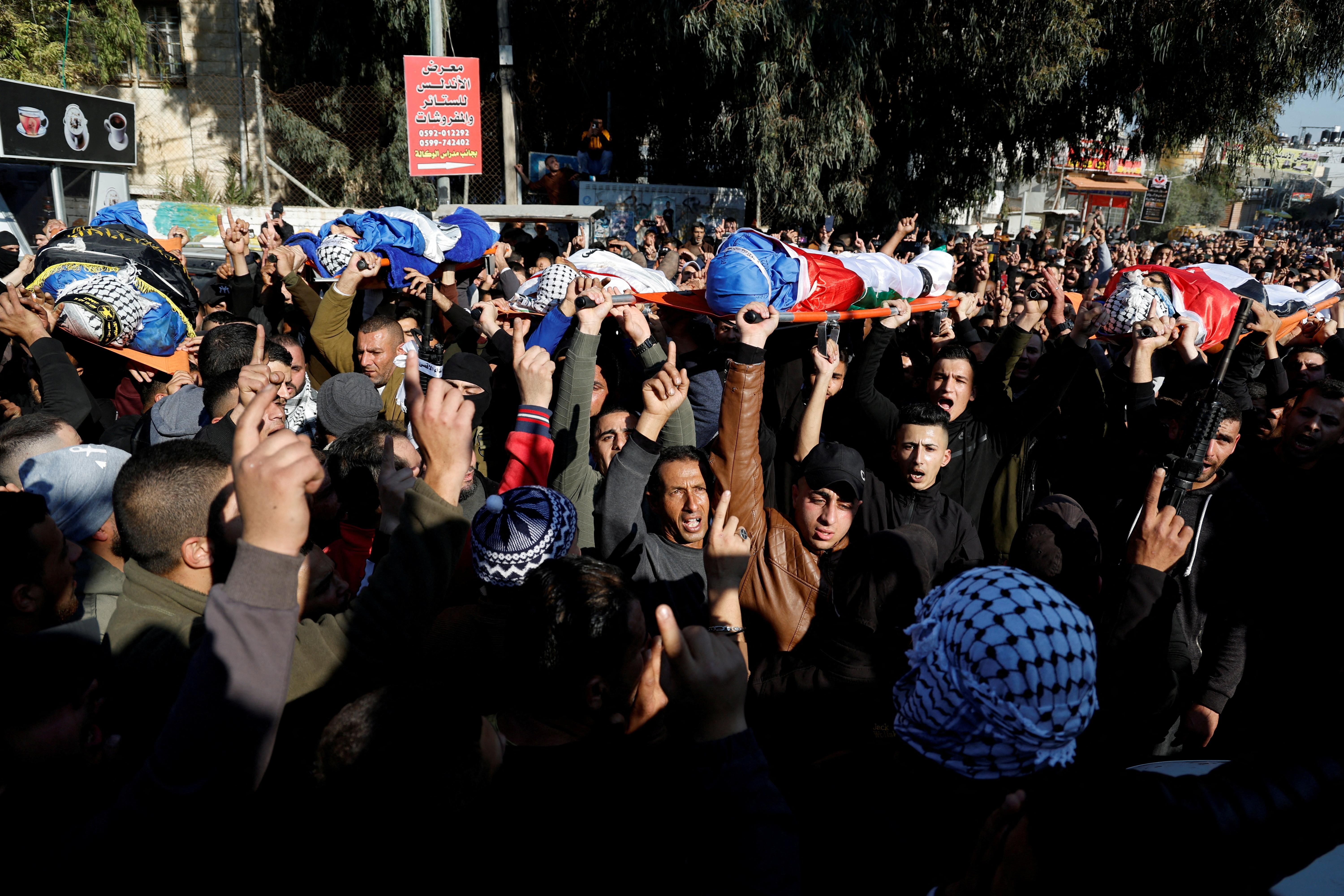What We’re Watching: West Bank violence, Czech election runoff, Thai coup jitters
After Jenin raid, Palestinian militants vow “revenge”
At least nine Palestinians were killed Thursday in Jenin in one of the deadliest West Bank operations in recent years carried out by the Israel Defense Forces. Israel’s military said it stormed the Jenin refugee camp to arrest members of the Palestinian Islamic Jihad suspected of carrying out and planning “multiple major terror attacks.” Authorities confirmed that at least seven gunmen and two civilians were killed in the operation that also injured 20 Palestinians. While members of Israel’s new right-wing government have been criticized for wanting to relax the military’s rules of engagement, this raid was part of a long-running effort to root out terror groups in the northern West Bank, which began last year after a series of attacks that killed 31 Israelis – retaliatory missions notably led to more than 100 Palestinian deaths. Israel is now on high alert, fearing a slate of missile strikes from the Gaza Strip as well as unrest in the West Bank and Jerusalem after Palestinian terror outfits – including Hamas and PIJ – vowed “revenge.” Friday saw a limited exchange of Palestinian rockets and Israeli airstrikes.
Czech runoff held after nasty campaign
Czechs vote on Friday and Saturday in a presidential runoff that pits former PM Andrej Babiš against former General Petr Pavel. Babiš, a Euroskeptic populist billionaire who leads the opposition in Parliament, says Pavel will drag the country into a war with Russia. Pavel, a Europhile who once headed NATO’s military council, says his opponent is a scaremongering liar. Each candidate has, for good measure, accused the other of collaboration with the pre-1989 Communist regime. Babiš made headlines abroad this week by saying he wouldn’t send Czech soldiers to defend NATO allies, though he later walked it back. Pavel, whose campaign slogan is “Let’s bring back order and calm,” leads the polls by double digits, but his outsized support among urban and younger voters may be better reflected in surveys than Babiš’s older, more rural base. Czech presidents are mostly ceremonial, but they can influence government formation and policy, and they represent the country abroad. Over the past decade, outgoing president Miloš Zeman – a Babiš ally – repeatedly stoked controversy, in part because of his overt sympathies for Russia.
